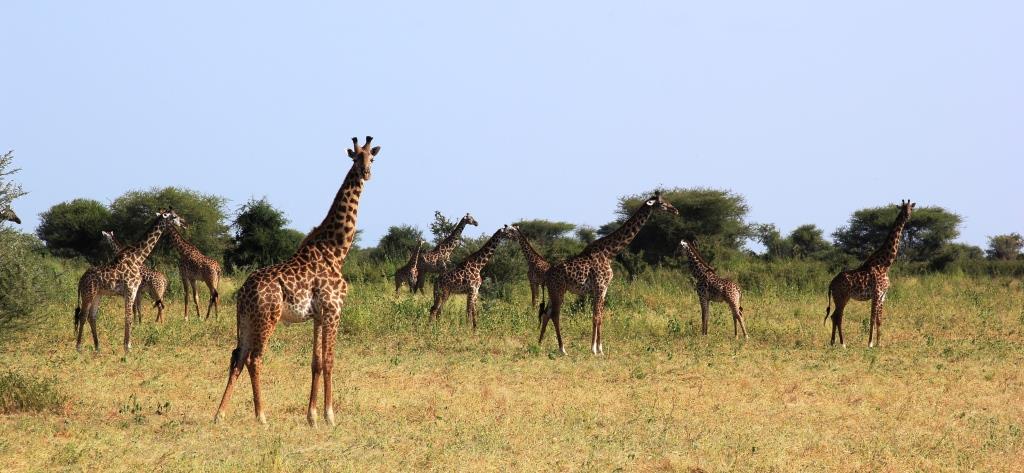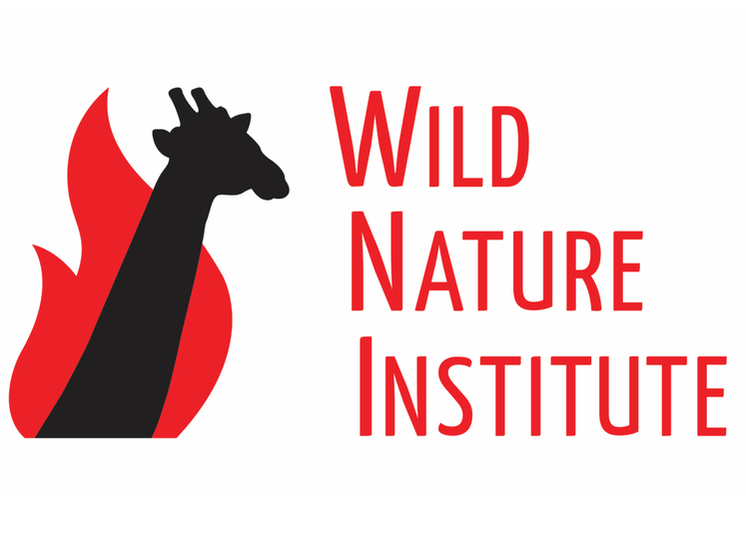|
A wonderful piece by Carole Currie in the Sunday Asheville Citizen-Times, November 21, 2015
http://www.citizen-times.com/story/life/2015/11/21/carole-currie-beautiful-giraffes-inspire-lives/76199130/ Beautiful giraffes inspire their lives Monica Bond and Derek Lee met in California at a scientific talk about divorce in spotted owls. It didn’t take them long to discover they were soulmates. Naturalist David Attenborough was her hero. Marlin Perkins, the zoologist and host of “Mutual of Omaha’s Wild Kingdom,” was his inspiration. A graduate of Duke, she had just gotten a master’s degree in wildlife science and he was doing spotted owl research at California’s Humboldt State University. Their interests just meshed. When he applied to Dartmouth for a fellowship leading to a Ph.D. studying giraffes in Africa using some new pattern recognition software and got the job, Monica said, “Yeah, I’ll go with you.” The two have been working in Tanzania since 2011 studying giraffes to learn where the animals are thriving or not and why, as well as analyzing their migration patterns to develop conservation measures so future generations can enjoy the beautiful animals. The married couple was in Weaverville recently on their yearly trip to the United States before they returned to Africa to dive back into their research. From his fellowship, Derek is now Dr. Lee. Monica’s parents live in Weaverville, so Weaverville is the mailing headquarters for their Wild Nature Institute (P.O. Box 44, Weaverville, NC 28787). Monica and Derek explain that all different types of giraffes have declined in the past 10 years due to overhunting and conversion of their habitat into villages and farms. Not much is known about giraffes because they have been studied so little. (The couple says there are only 10 giraffe researchers in the world.) What the couple does know about the animals is that they are graceful and calm. They graze on the high leaves of acacia trees. The trees have long, spiny thorns but giraffes have tough mouths and long tongues for ripping off shoots. When Monica and Derek drive out into the bush for weeks at a time to track giraffe populations, they do no traumatic tagging or marking of the animals. Instead they photograph each animal on its right side and later use the pattern software in the computer to recognize the animal. No two patterns are alike. A Masai driver accompanies them. Because the off-road terrain is so rough, Derek laughs and says he has become very good at car repair. The two rise in pre-dawn, work all day driving and photographing, cook at night (rice and vegetables purchased in villages), sleep in a tent and are up and at it again the next day. The area is rich in wildlife such as lions and elephants as well as wildebeests and zebras. When they return to headquarters they process all the photos to identify the animals — more than 2,100 so far — so they can track them. Back at camp the two are also involved in conservation and education work with villagers about the importance of preserving the area’s rich wildlife populations. When giraffes leave the national park areas to go to other grazing and mating areas, often where there are more people, their population is threatened. They face special danger from poachers who sell giraffe for bush meat, which is cheaper than other meats. Mother giraffes are fierce in defense of their babies, using their dinner plate-sized hoofs to stomp and kick predators. Still, only about half of giraffe babies survive. Although their lives seem spartan, Monica and Derek say the lifestyle suits them perfectly. They love Africa; they love being outside in nature and don’t care about owning a permanent home. They want to keep working with giraffes to get some answers to the many questions they have about the animals. They hope to be instruments of long-term positive change for the animals and for the Masai people. Some of their time is spent in fundraising, applying for grants and making reports to funders and that makes the future always a little uncertain. On their wish list is a new vehicle to replace their old one. For more information, go to www.wildnatureinstitute.org. In Tanzania, the two have almost everything they could need and want. But on their return trips to the U.S. they stock up on electronics and cameras and Monica’s favorite decaf coffee. This is the opinion of Carole Currie. Call her at 828-658-1914 or email [email protected].
0 Comments
Your comment will be posted after it is approved.
Leave a Reply. |
Science News and Updates From the Field from Wild Nature Institute.
All Photos on This Blog are Available as Frame-worthy Prints to Thank Our Generous Donors.
Email Us for Details of this Offer. Archives
July 2024
|
|
Mailing Address:
Wild Nature Institute PO Box 44 Weaverville, NC 28787 Phone: +1 415 763 0348 Email: [email protected] |
|


 RSS Feed
RSS Feed
